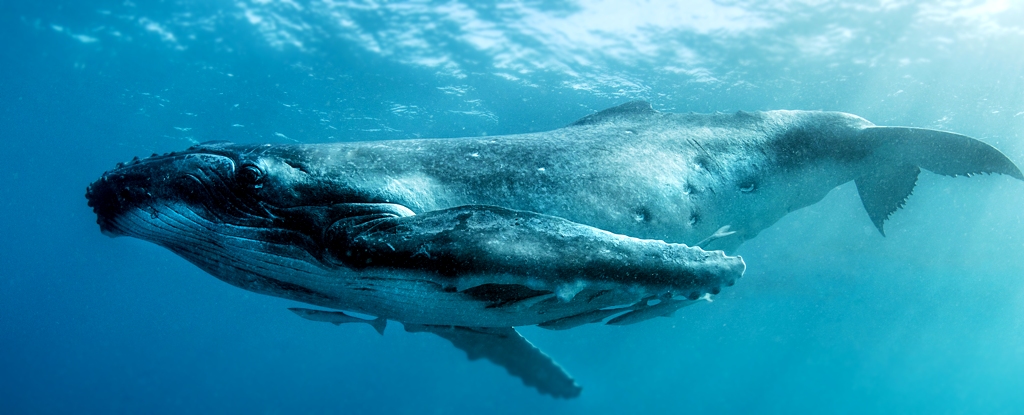
What is the common ground between experts in whale studies and alien researchers? More than you might anticipate.
In a recent research paper published in the peer-reviewed journal PeerJ, scientists from UC Davis, the Alaska Whale Foundation, and SETI (Search for Extraterrestrial Intelligence) collaborated.
Their objective: Establish communication with whales. And they successfully achieved that goal.
In a groundbreaking experiment, the team engaged in a 20-minute dialogue with a humpback whale named Twain using her language.
Twain and the scientists didn’t engage in small talk about the weather or the latest fish gossip — we’re still a long way from that level of comprehension.
However, what did occur was extraordinary.
Conversing with whales
The researchers navigated a boat off the coast of Alaska and emitted a “contact call” into the ocean to observe if any whales would respond.
Contact calls serve a purpose similar to a human greeting. According to lead author Brenda McCowan, a professor at UC Davis’s School of Veterinary Medicine, whales employ them to beckon other whales or communicate their locations to each other, as she explained to Business Insider.
“They are one of the most common signals within the humpback whale social sound repertoire,” Fred Sharpe, co-author and principal investigator with the Alaska Whale Foundation, told Business Insider.
Sure enough, Twain approached the boat and circled around it. Over the next 20 minutes, the researchers emitted the same contact call 36 times at different intervals, and Twain consistently responded to the call each time, even closely matching the intervals.
This means that if the scientists waited 10 seconds before playing a call back to Twain, she would, in turn, wait 10 seconds before responding, explained McCowan. This form of interval matching implies that Twain was participating in an intentional exchange, she added.
“It certainly felt like we had been heard,” Sharpe told BI, emphasizing that their work is done with a permit from the National Marine Fisheries Service and readers should not try this at home (or sea). “And we hope that she felt the same way, too.”
“We believe this is the first such communicative exchange between humans and humpback whales in the humpback ‘language,’” McCowan said in a statement.
The calls originated from humpback whales that the researchers had documented from a small group of whales just the day before their encounter. The group had included Twain, so it’s conceivable that Twain was responding to her own signal.
“We might’ve been playing back her own hello to her,” Sharpe said.
Now, how does this connect to communicating with aliens?
It appears that Twain’s behavior could be comparable to how intelligent alien races might attempt to communicate with humanity, according to Laurance Doyle, a principal investigator at the SETI Institute and coauthor of the paper.
“An important assumption of the search for extraterrestrial intelligence is that extraterrestrials will be interested in making contact and so target human receivers,” sort of like how Twain responded to the contact call from the scientists, Doyle said in a statement.
Doyle and his colleagues at SETI are collaborating with whale and animal experts at UC Davis and the Alaska Whale Foundation to develop intelligent filters to assist in their quest for extraterrestrial intelligence.
If extraterrestrials are indeed sending signals, attempting to communicate with us, we could overlook them if we lack the knowledge of what to search for, Doyle explained to Business Insider.
By refining these intelligent filters, scientists aim to employ them for recognizing intelligent signals from space, with the goal of initiating first contact with an extraterrestrial race.
“There are diverse intelligences on this planet, and by studying them, we can better understand what an alien intelligence might be like because they’re not going to be exactly like ours,” McCowan said.
The study is also exploring the concept of whether intelligent extraterrestrial life would actively attempt to make contact with us, as Doyle informed BI.
“Whale research has indicated if you’re intelligent, curiosity comes along with that, and you want to make contact,” Doyle said.
The researchers expressed their desire to conduct similar studies with other intelligent Earthly animals, encompassing additional cetaceans such as dolphins, cooperative carnivores involved in hunting, and other highly social species like meerkats and elephants.
This piece was initially featured on Business Insider.





